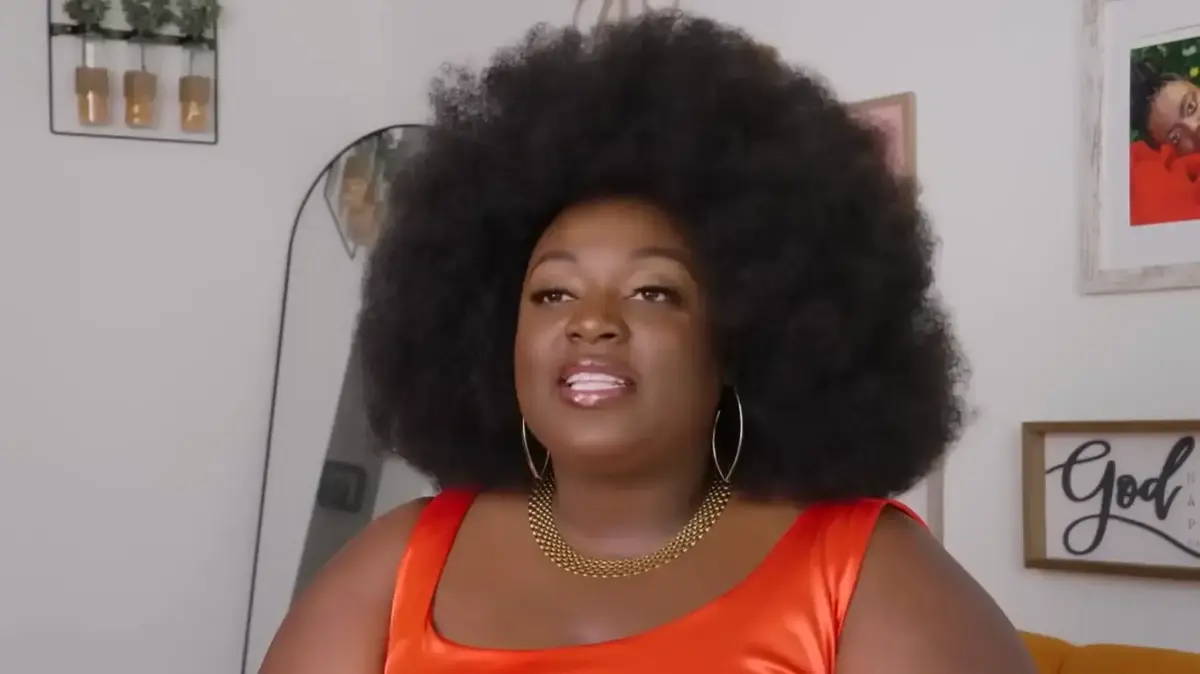Jimena Adúriz (58) does not want to talk about Jorge Mangeri (55).
"That man," "that person," "the murderer of my daughter," he says every time that, during the interview with Clarín, he necessarily has to refer to him.
He once declared in a report that he had forgiven him, but he no longer wants to occupy a minute of the talk in the doorman.
On June 10, 2013, Mangeri killed Ángeles Rawson (16) in the building at 2360 Ravignani Street in Palermo, where he worked and Ángeles lived with his family. He did so after trying to rape her and for her to defend herself.
See also
10 years after the femicide of Angeles Rawson, she was 16 years old and disappeared when she arrived home
The body of the girl appeared on the morning of the 11th in the grounds of the Ceamse of José León Suárez.
The doorman had thrown her into a dumpster so she would never be found. But the plan failed him and failed him so much that, four days after the discovery of the body, he ended up in prison.
He incriminated himself and finally the DNA extracted under the victim's fingernails ended up complicating it definitively. In 2015 he was sentenced to "life imprisonment", today he lives in the Ezeiza prison – where he studies Social Work – and he lacks decades to think about being released.
Oddly enough, 10 years have passed since the case that moved Argentine society like few others. A decade, a round anniversary that, Jimena acknowledges, hits harder than any other. "It is enough to see the children of the family who were one-year-old babies and now they are 11-year-old boys to realize the time that passed," says Ángeles' mother.
Jimena received Clarín in the apartment of Barrio Norte that belonged to her mother-in-law and to which she moved a few years ago with her husband, Sergio Opatowski (65), and their son Axel (26). She is always kind to the press, which helps her keep the memory of Angeles alive. He is kind although for a long time journalists were (were) part of the hell he had to suffer.
Sergio Opatowski and Jimena Adúriz.
"The same night of Friday the 14th, after testifying at the prosecutor's office, we had to go live at my brother's house in San Isidro and leave everything in Ravignani. There were journalistic guards in all my family's homes. I had to change my physical appearance. After the first month, I cut my hair and dyed it black to feel calmer and be able to go outside without being recognized," says Jimena.
In those terrible days in which her husband, Sergio Opatowski, was seen as the main suspect, Jimena had to mix her grief with the panic of being arrested and even with the estrangement of some acquaintances who stopped talking to them.
"That generated something very ugly ... very ugly. It was so strong, so intense and so violent that it downplayed what really had to happen, which was to know what had happened to Angeles, "recalls Jimena but does not want to focus on that, but on the memory of her daughter.
-What was your daughter like, how do you remember her?
"Angels was a character! We called her Mumi because when she was little, she was so, so, divine, so sweet, so smiling, that she was edible. And I really like dulce de leche candies, the "mu-mu", many will remember them. And that's where Mumi came from. She loved that nickname. We were very companions, she was super cool with me. We lived in a world full of men and had become buddies. We were friends on Facebook, the text messages were permanent. We escaped to the corner to have breakfast and coffee. We did baby things, things that for me were todoooo.
-It was always said that she was a very good student.
Yes, she had a commitment to excellence. For example: she was not very good at volleyball and asked the teacher to teach her the techniques. If he failed, he tried harder. They always demanded a lot of me in my family context, that's why I didn't directly demand anything, Ángeles didn't even know how to make a fried egg. He always helped, did some chores and I paid him a few pesos so that he had his money. She was a very piola girl, with a lot of social commitment, she had been very affected by Candela's crime, for example.
The painful post of Jimena Adúriz, mother of Ángeles Rawson (16), the teenager murdered in June 2013.
-Candela Sol Rodríguez (11), the girl kidnapped and murdered in 2011?
"Yes, Angeles was very, very moved. He made a post on Facebook saying "gentlemen politicians, we do not want more Candelas". He did it even though at home it was not something that was frequent to talk about politics. We are Christians and there is a lot of talk about looking at the other, about solidarity, about the importance of highlighting acts of solidarity or putting oneself in the place of the other, of sharing, of non-violence of any kind. But no, we weren't, for example, about watching newscasts.
"Angeles was introverted but very assertive in what she said and somewhat sarcastic and thoughtful. I always say that it was very different from me, because I am very talkative, very very emotional, very much of those that I am embracing and that's it. I'm a sitter and she wasn't, she wasn't, she wasn't like that. At least, he didn't show it. But he loved that I only stroked his hair or that we watched a movie both lying in bed, embraced. We loved that... I miss that... Horrors... horrors," says Jimena and that pain comes out of her body like a shock wave.
It is 10 years since the crime of Ángeles Rawson and Jimena gives more journalistic notes than usual. That takes a toll on your body. A few days before meeting Clarín, he went to the cemetery, to his daughter's grave, to do an interview. Then he was voiceless for three days. "I'm out of bed," he says.
"Now that we are ten years old, everything is particularly strong, everything is more vivid, we review everything that happened minute by minute. It happens to the members of the nuclear family and also to the extended family, including friends, friends of my children, everyone who has had some relationship with her," he acknowledges.
Angeles Rawson was killed by goalkeeper Jorge Mangeri.
The night that changed everything
On Monday, June 10, 2013, Angeles didn't come home for dinner. Then his family felt something was wrong. "And starting from our life was destroyed, really destroyed," Jimena says.
-We once talked about it, there was something miraculous in the appearance of the body of Angels...
"Yes, everything was arranged so that it never appeared. Because the four trucks that left that night were four trucks that directly unloaded organic waste, they did not pass through the processing plant. But that summer, in January 2013, the processing tapes had been put on manually and miraculously or by force of her, or by God, or whatever, that truck unloaded there. And so, thanks to that, thanks to that miracle or thanks to her, I was able to know what had happened to her. It would have been terrible not to know. Ángeles even, with his index finger, marked the murderer, there was his DNA. That person today is serving the punishment he deserves and is not harming anyone else.
The drawing that "Mumi" made for his stepfather.
How did you live the night of Friday, June 14, 2013, the one in which Mangeri entered the prosecution as a "witness" and left as an "accused"?
"The day before we had buried Angels. We couldn't go back to our house because it had been raided. My older brother told me "don't come back" and took all of us, my children, my husband and me, to his house. The next day, early in the morning, the police came to pick us up to go and testify. At that moment what occupied my mind was that less than 12 hours ago I had seen the drawer of my daughter, my baby, descend into the earth.
-It was an operation to reach the prosecutor's office...
-In the prosecutor's office was when I had the first very bloody contact with the reality of what was happening, because when they got us out of the car on Carlos Pellegrini, we had to walk half a block between journalists who were totally raging and I do not know if the public too. It is seen that all the mediatization and social condemnation was already brewing. One of my sons is big and he was covering us. That must have been at about 11.30 a.m. on Friday the 14th. The first to enter to testify was my son Juan Cruz, a barbarity that happened first him.
-You declared later...
-I entered at 18 and stayed until almost 21. When I came out, Jerónimo, the eldest, came in. And that's when they brought him to Mangeri. I'm not going to talk about Mangeri because I don't feel like giving it entity. It was a tremendous moment of my statement, it was like a covert inquiry. They asked me everything. I understand the search for truth... I do not deny the good intentions of one of the judicial actors involved, but really zero empathy towards the families of victims. That moment traumatized me a lot, it marked me and it's a very common thing and it still happens.
What happened to Mangeri that night in the prosecutor's office?
"When I got out of those three hours of declaration hell, I went to the stairs to smoke a cigarette. I hadn't eaten, not even a glass of water was given to me. And in the meantime came Mangeri. I went to greet him because I didn't know anything and he was a person who had been working in the building for 11 years. I had not seen him because he had reported sick. Mangeri enters and then I see a doctor enter, there was a lot of movement. Jerome, who was declaring inside, came out. By then Sergio had already arrived and Jerónimo told us: "It was Jorge, he is up to the balls".
Jorge Mangieri, during the last hearing in the trial for the murder of Angeles Rawson.
"I reckon it was a blow.
-Believe it or not, at that moment I felt the relief of knowing that there was a culprit identified. I was very afraid of how aggressive everything was, what they said about my husband. At about one o'clock in the morning of Saturday the 15th, they began to see how they took us out of the prosecutor's office. We had spent 13 hours straight there. We went out and there was a fence. There were all the journalists behind. I went out with mom, Sergio and one of my brothers, who had made the change with one of my sisters-in-law.
-In the street there was a tremendous mess.
-They came to take us out with a shock brigade of the Federal Police! Terrible. We went out in two groups. I remember the insults, the shouts, they called Pato a murderer (Sergio Opatowski's nickname)! I went into tremendous terror because I was so afraid that something would be done to him. Very scary. And I didn't understand why. They put us in a car and as in the movie "Fast and Furious" they got into the sidewalk and from there through Florida in reverse to mislead the press. We changed cars and ended up in San Isidro. I get angry, I get very angry with that situation, I get very angry because that was totally gratuitous. Besides, people, people, people didn't tell me, but they didn't want to join us. Crazy.
Jimena went through hell, but she doesn't seem to hold a grudge against the press. For her, giving notes is a way to remember her daughter.
When she tries to explain this position, she cannot think of a better way than to use a phrase from another mother who went through a similar nightmare, Isabel Yaconis, Lucila's mother, murdered in an attempted rape in 2003, a case that still goes unpunished: "There is nothing more terrible for a mother than your daughter, Someone so present, so current, becomes a pin, a shirt, an old photo."
EMJ
See also









